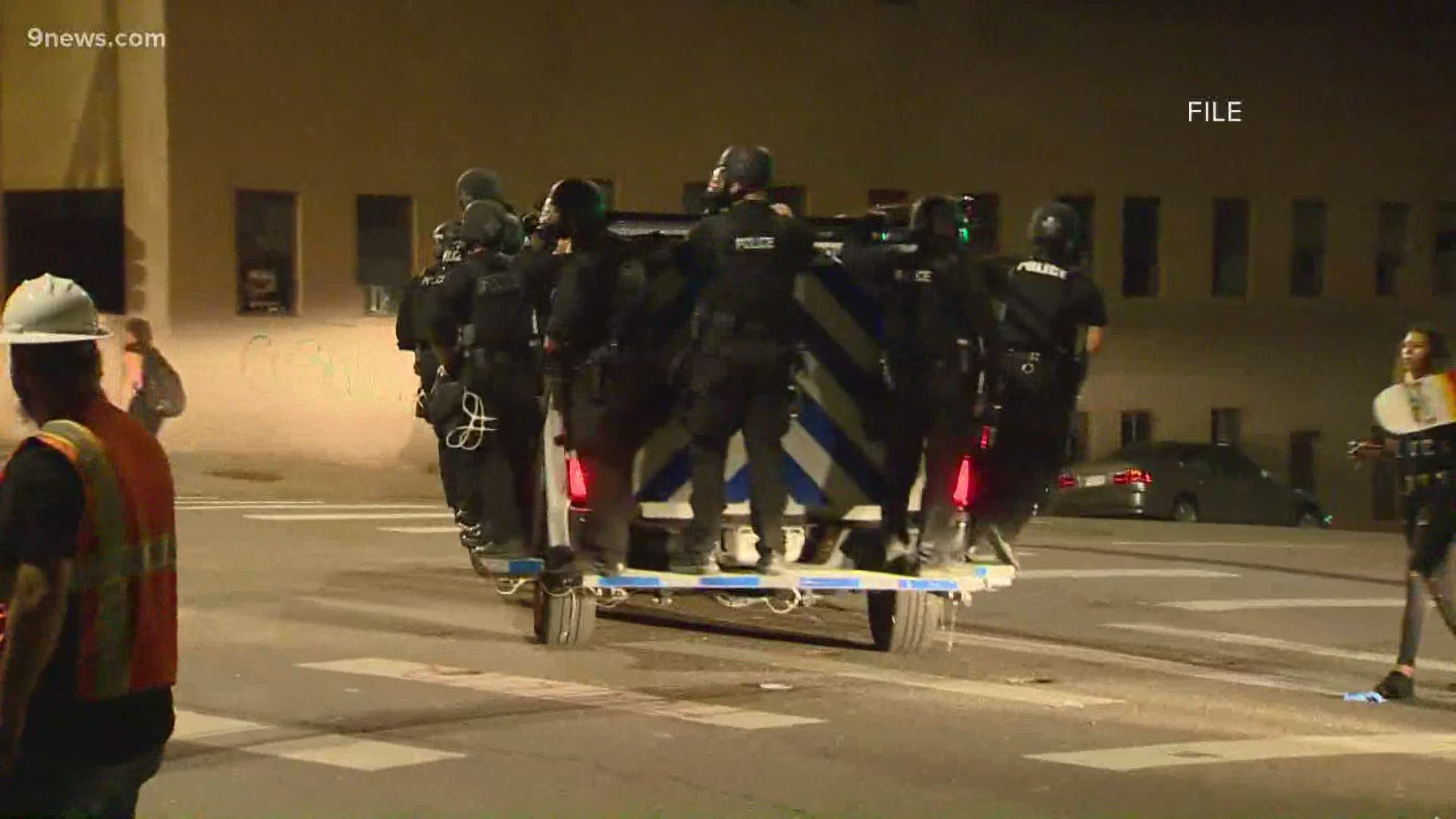DENVER — The Denver Police Department (DPD) on Sunday announced policy changes for what it calls an effort to maintain the highest level of public accountability.
DPD is making three "significant" changes to its use of force and body-worn camera policies, the department said in a news release.
The new policies were created through collaboration with DPD’s Use of Force Committee and through consideration of recommendations from the Center for Policing Equity. Effective June 7:
- The Denver Police Department updated language to clarify the existing policy of not allowing chokeholds or carotid compression technique with no exceptions.
- Officers will report to a supervisor if they intentionally point any firearm at a person, and a report will be created to improve data collection and evaluation of these incidents.
- The Denver Police Department Metro/SWAT unit will activate their body-worn cameras when executing tactical operations.
“We will continue to evaluate our policies with community input and make improvements as needed in the interest of public and officer safety,” said Chief Paul Pazen.
The changes come after 11 days of protests in Denver in response to the in-custody death of George Floyd in Minnesota.
The first four nights of protests resulted in clashes between police and demonstrators, as law enforcement responded by firing tear gas and foam projectiles at some people throwing fireworks, rocks and water bottles.
The clashes spurred action at the state Capitol, with the introduction of a sweeping police reform bill, SB 217, that is making its way through the legislature. The 16-page bill would implement a reporting system in which officers who used excessive force would be tracked if moving to another department, and officers also would only be able to use deadly force only if in imminent danger.
Late last week a federal judge ruled on a temporary restraining order limiting DPD officers' use of tear gas, rubber bullets, pepper balls, pepper spray and flashbangs.
The order, which was handed down Friday night, puts restrictions on officers in using any kind of chemical weapons or projectiles against protesters unless an on-scene supervisor at the rank of captain or above "specifically authorizes such use of force in response to specific acts of violence or destruction of property that the command officer has personally witnessed."
The order was amended to allow lieutenants the same authority to authorize use of force.
SUGGESTED VIDEOS: Local stories from 9NEWS

